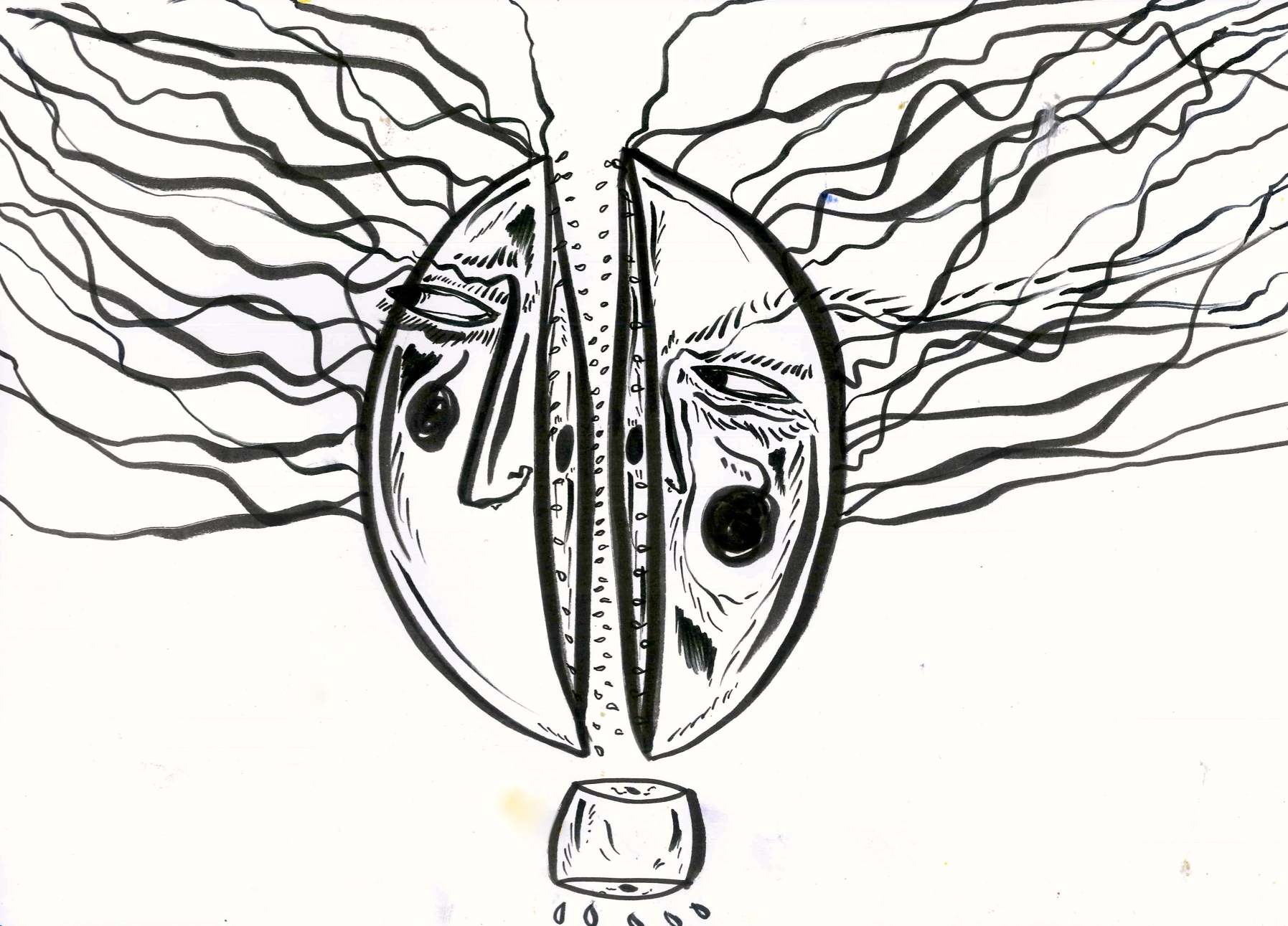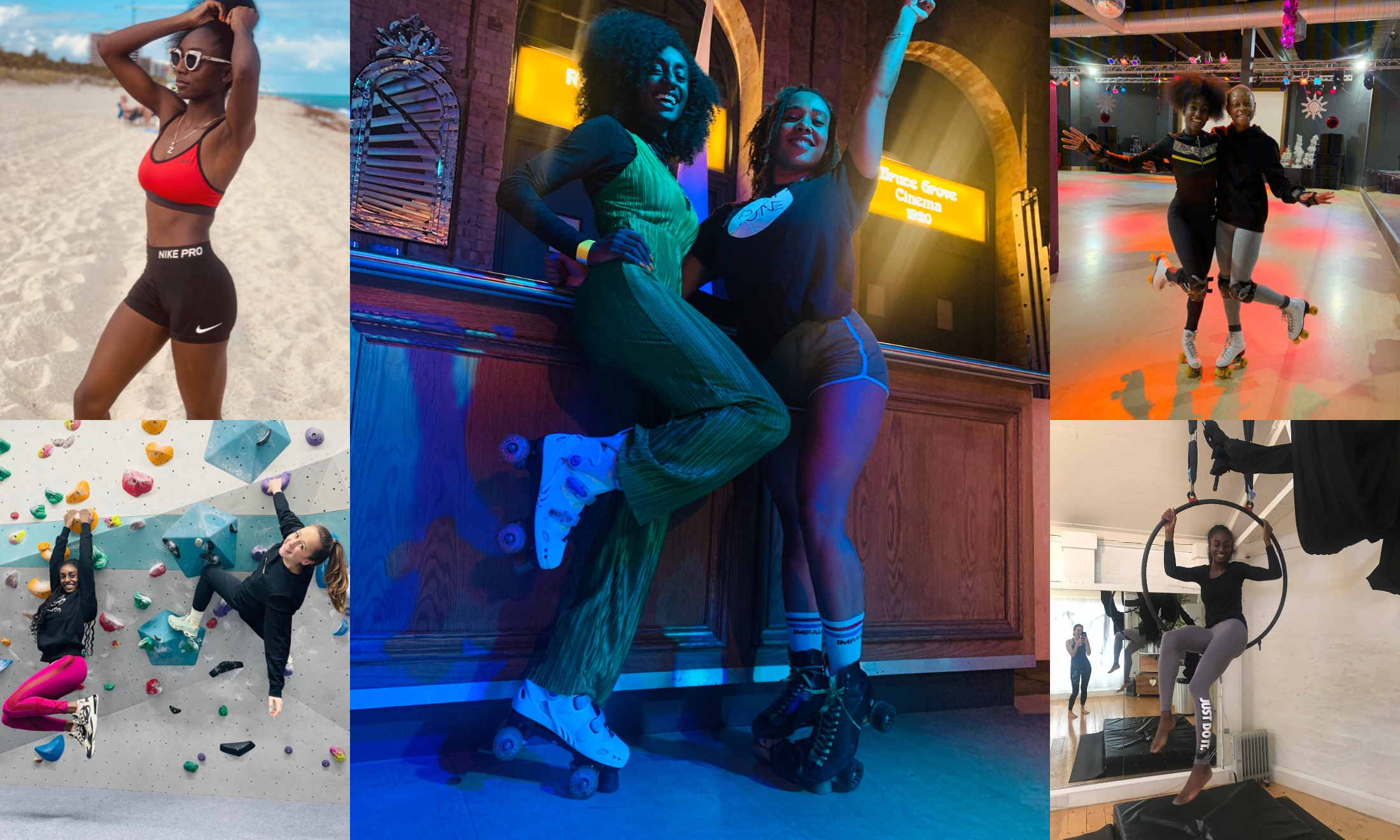
In the run up to our birthday and release of our second print issue, we’ll be posting articles focusing on this year’s theme of ‘HOME’ . They will feature content centred around our experiences relating to what home means for us as women and non binary people of colour, in a personal and political sense. Tickets for the print launch on Friday 29 September are sold out, but keep an eye on the Facebook event page for last minute spares.
My home is a place of comfort, a place I can rely on when my mental health is unstable. Yet, it is also a place where I have to hide parts of myself. I was always surrounded by British friends and attended a liberal arts university, yet this Western self of mine does not always align with my Asian self, who was brought up in a traditional Iranian Muslim home. The two often clash and I find more and more that I seem to be living a double life.
My double life became more apparent as I was growing up. I always felt saddened by the isolation I felt in not having the same freedom as my white friends. Restrictions were constant; I couldn’t go to sleepovers, I couldn’t wear or say what I wanted, I couldn’t speak to boys, I wasn’t allowed to do a lot of the things that I saw my friends do. Despite a lot of them making bold statements that I should be truthful with my family because they’d “understand” and “just want you to be happy” it really wasn’t that simple. If your family can just about agree to disagree with you, then you’re actually one of the lucky ones. Unfortunately, you can’t always expect your family to accept you as you are, and in some cases it can even be unsafe to suggest this.
I love clothes, I love dressing in ways that reflect my mood and personality. If I’m dressed well it brightens my day, and despite how superficial it may sound, if I look good it makes me feel good. However, after turning eleven years old my family made me conscious of what I could and couldn’t wear. For example, I am not allowed to show the top of my arms or legs because then I would look like a gendeh (whore.) This closed black and white mentality, that the way you dress reflects your personal traits and actions, is tiring. You are either a whore or a virgin and there’s no inbetween.
“It’s much easier to hide your true self, than to be exposed to your family and have to deal with the repercussions”
After never ending battles with my family about how I think having bare legs during the summer really isn’t that bad, I learnt it was easier to dress how they like when I’m with them, and how I like when I’m not with them. Moving away for university helped, but it took me over a year to really feel comfortable with how I dressed, and to learn to ignore the voice in my head that would attempt to suffocate me with my family’s opinion. I live a double life. I sometimes wear short-ish skirts when I don’t see them, and pack tights and a jumper in my bag to get changed into when I do. I’ll be turning 25 soon and this way of living is normal for me now. I know others in their mid-thirties who do the exact same thing. It’s a coping mechanism. It’s much easier to hide your true self, than to be exposed to your family and have to deal with the repercussions.
The criticism they give can be blatant, but it is sometimes masked within another comment. My dad once said my mum was ashamed to be walking down the street with me because of how I dressed. He said it to deflect from what he wanted to say, which was that actually he didn’t like the way I dressed. If I wear red lipstick I often get called a clown, and a torrent of comments are fired at me by my brother and dad as “jokes.” My whole look is constantly critiqued, and I’m made to feel ashamed for not dressing in the most muted and inconspicuous way possible.
It goes without saying that having a boyfriend and drinking alcohol must be hidden if you grow up in a Muslim family. Some young British Muslims refer to having a drink at a bar as having “coffee” or “dinner” to avoid suspicion, and seeing anyone romantically is often changed to just seeing your “friend.” I know someone who has successfully hidden their serious boyfriend of eight years from their strict Muslim family. Eight years of hiding every day aspects of her life and eight years of making excuses, which was then followed by another year of hiding heartbreak and sadness. She would say she was just “tired” whilst she excused herself into her bedroom to cry over their break up.
“Men don’t need to hide their lives because for many reasons, the rules are different for them”
It’s not easy living a double life, it’s draining. But this is often a reality for women in the west who grow up in Muslim families. Men don’t need to hide their lives because for many reasons, the rules are different for them. It is unlikely that the ingrained sexism of the older generation is going to change any time soon and although lots of us do try to challenge it, after a while it simply becomes easier to accept the situation. We accept that our home is a place where only part of us can rest.
However, it’s important for me to clarify that my home is a place I also love. Regardless of our differences my family is close knit, and often when my anxiety reaches its peak I can catch a train back home and know that I will be taken care of. I may not be able to voice all of my problems but sometimes just sitting with people that love you is enough to put your mind at rest. My situation isn’t black and white and my home is not always a place of unity, but it is a place of respite and it’s important to take care of yourself, especially when living a double life.









